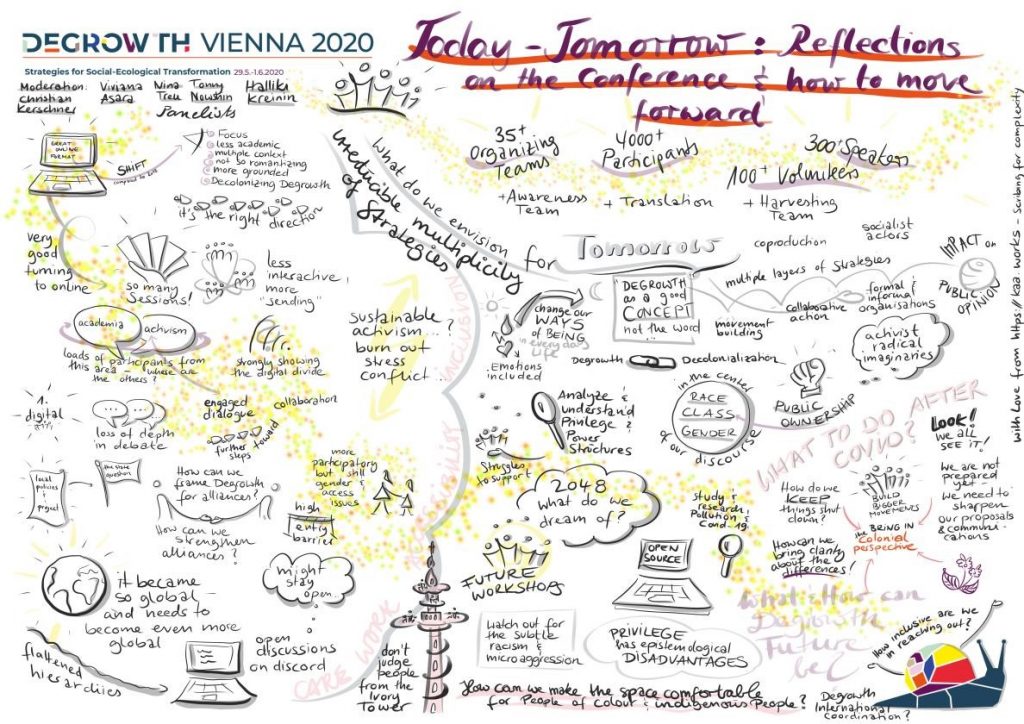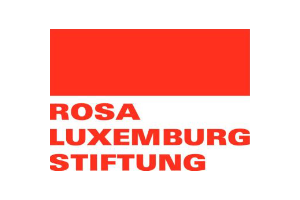Vienna Degrowth Days
20 - 25 November 2020
Transformation by design, not by disaster!
Together we want to find ways towards a post-capitalist society. At the Degrowth Vienna 2020 online conference we were able to discuss and identify various pathways to Social-Ecological Transformation with more than 4000 participants.
Working time reduction, food sovereignty, transnational solidarity or housing are just a few of the areas that were discussed in detail – we take this as a starting point for the Vienna Degrowth Days to together develop concrete strategies: From the 20th to the 25th of November 2020, the Vienna Degrowth Days will offer space for discussion, networking and learning. Similar to the online conference, we want to maintain the focus on strategies for Degrowth and Social-Ecological Transformation.
The global pandemic uncovered once again the unprecedented urgency of an immediate and radical transformation of the dominant, growth-dependent mode of production and living. Degrowth provides visions for an economy that does not depend on growth and is organised democratically, a society that is organised around the good life for all instead of the constant accumulation of capital.
A radical transformation requires not only a critique of the status quo and visions for a differently organised society, but also strategies for realising them. We are thus happy to be able to discuss a diverse set of strategies in various societal areas at the Degrowth Days.
The workshops and panel discussion will deal with the following questions:
- How can the restructuring of the economy be designed democratically?
- How can we ensure the transformation is not carried out on the backs of employees and socially disadvantaged people?
- What would happen within financial markets in a Social-Ecological Transformation?
- How can scientific research contribute to conceptualising social transformation when it itself operates within the logics and institutions of competition, marketing and growth?
- How could global solidarity look like, how can we achieve it?
- How can we as a society change the current state at Europe’s external borders and assert human rights for all?
- How may the police-prison nexus prevent any progressive and radical transformation and what are possible alternatives?
- What role does art play in the struggle for transformation and how can we get involved in this process?
- How can we put into practice the organisation of a self-organised, affordable and regional supermarket?
- and many more…
Uniting Strategies
Just as important as discussing individual strategies is the question of how to unite them. If we assume that fragmenting and isolating individual struggles are methods of preserving current power structures, we need to find ways to overcome and fight this isolation.
How can initiatives strengthen each other through their different experiences, where do contradictions emerge and how can they be dealt with productively?
How can we create alliances and unite strategies to achieve a democratic Social-Ecological Transformation?
How has 2020 changed the struggles and possibilities of transformative practice? Do concepts like Degrowth or Social-Ecological Transformation provide a useful common ground for a mosaic of progressive approaches? These questions will be dealt with in all our contributions in one way or another but above all, they will be subject of our closing panel “United We Transform”.

In collaboration with


Supported by

